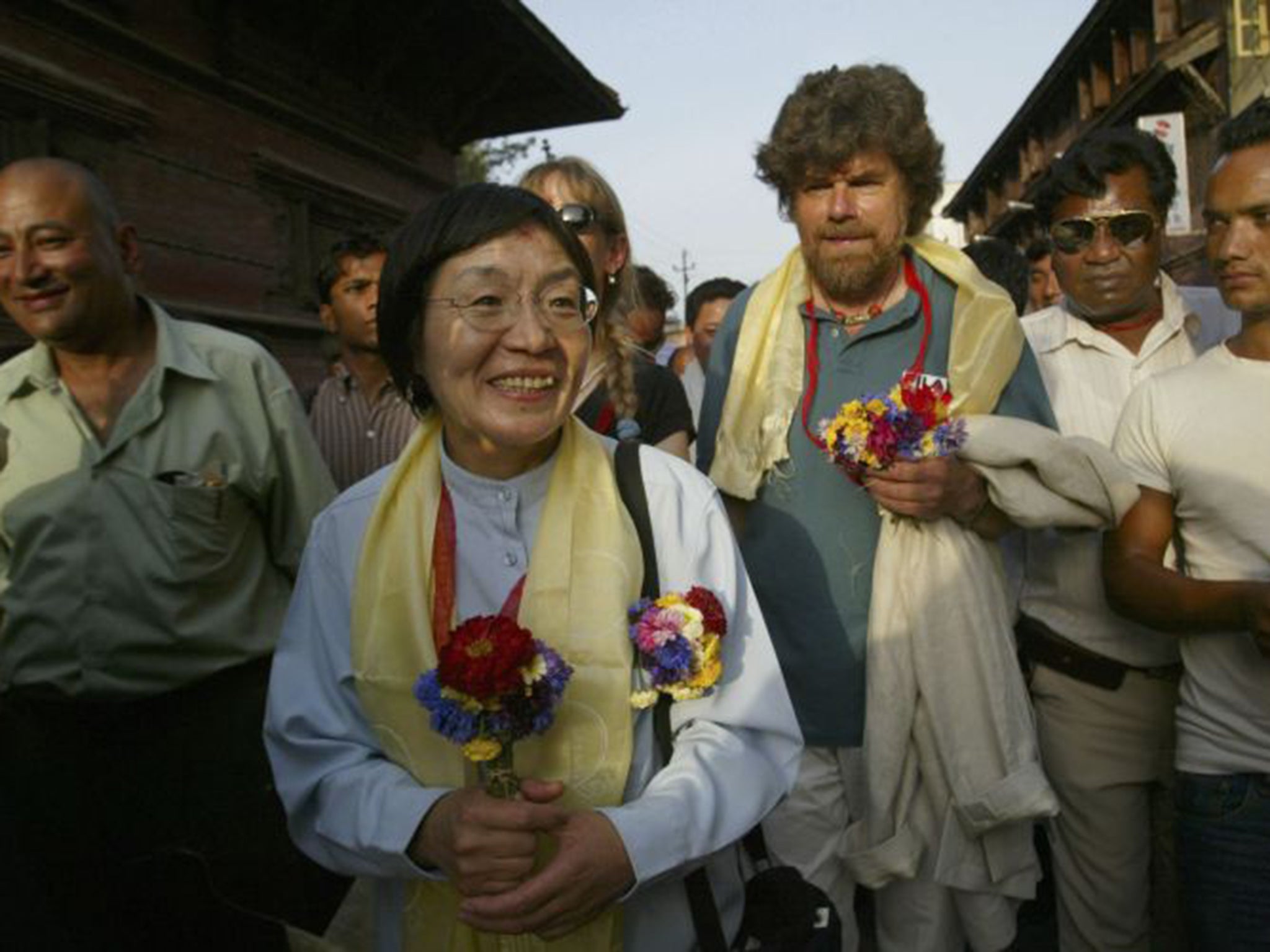Mount Everest: Inexperienced climbers to be banned from climbing world's highest peak
- Officials want to stop disabled, elderly and very young climbers attempting to scale Everest
- Safety was brought into sharp focus last April when an avalanche killed 16 Nepalese guides
- Tourism minister wants to implement new rules before spring, the mountain's busiest period

Your support helps us to tell the story
From reproductive rights to climate change to Big Tech, The Independent is on the ground when the story is developing. Whether it's investigating the financials of Elon Musk's pro-Trump PAC or producing our latest documentary, 'The A Word', which shines a light on the American women fighting for reproductive rights, we know how important it is to parse out the facts from the messaging.
At such a critical moment in US history, we need reporters on the ground. Your donation allows us to keep sending journalists to speak to both sides of the story.
The Independent is trusted by Americans across the entire political spectrum. And unlike many other quality news outlets, we choose not to lock Americans out of our reporting and analysis with paywalls. We believe quality journalism should be available to everyone, paid for by those who can afford it.
Your support makes all the difference.Inexperienced climbers will be banned from attempting Mount Everest under new rules planned for next year by Nepalese officials.
Only those who can prove that they have scaled mountains higher than 6,500m will be issued with a permit to attempt to reach the 8,838m summit of the world’s highest peak, officials said. Disabled, elderly and very young climbers also face being banned.
“We cannot let everyone go on Everest and die,” said the country’s tourism minister, Kripasur Sherpa. “If they are not physically and mentally fit it will be like a legal suicide.”
He added that “the disabled or visually impaired people usually need someone to carry them, which is not an adventure” so “only those who can go on their own will be given permission”.
He said he hoped to implement the new rules in time for the spring, often the busiest time for mountaineers trying to reach the summit.
Safety was brought into sharp focus last April when an avalanche killed 16 Nepalese guides, most of them from the Sherpa ethnic group who come from Nepal’s most mountainous region in the Himalayas. Their deaths prompted their colleagues to abandon the remainder of the climbing season.
The previous year Australian Dean Higgins, 60, survived six hours beneath an avalanche but died after walking eight hours to safety. Three guides were also killed.
It is unclear how the new rules governing the permits, which cost thousands of pounds, would be enforced or climber records checked.
More than 4,000 climbers have reached the summit since 1953, when the New Zealander Edmund Hillary and Sherpa mountaineer Tenzing Norgay became the first to achieve the feat.
We cannot let everyone go on Everest and die
Every year around 600 climbers arrive in Nepal hoping to emulate them. But while it has created a multimillion-pound industry with inexperienced climbers paying guiding companies tens of thousands of pounds to be taken to the top, there have also been problems with overcrowding.
Last week Junko Tabei, who became the first woman to scale the mountain in 1975, Nepal needed to control the number of climbers attempting to reach the peak, according to the local press.
Ms Tabei, Nepal’s honorary tourism goodwill ambassador, said: “Allowing a large number of climbers in a season poses high risks to mountain environment and the climbers.”
The president of the Nepal Mountaineering Association said he doubted the plans would be implemented. “Earlier such plans were aborted because of pressure from human rights organisations and foreign embassies,” he told The Guardian.
An age bar “would be a good move,” he said. China bans climbers younger than 16 and older than 75. The chairman of the Expedition Operators’ Association of Nepal also backed stricter rules.
Join our commenting forum
Join thought-provoking conversations, follow other Independent readers and see their replies
0Comments